- ALL SERVICES
- • Salesforce Consulting Services
- • Managed Services
- • Simplification of Interfaces
- • Data Migration and Processing
- • Architectural Solutions and Scoping
- • Code Review, QA and Support
- • Applications Development
- • Pre-sales and Solutions Consulting
- • Technical Audit and Support
- • Custom Applications Development
- • AI Apps
BLOG
HubSpot to Salesforce Migration: 3 Ways To Do It Right
• Date: August 2024 •
Estimated reading time: 12 minutes
Estimated reading time: 12 minutes
If you find that your business needs are evolving and you want to leverage the capabilities of Salesforce, transitioning from HubSpot can be a strategic move. For organizations with complex sales processes and global teams, Salesforce offers a more robust, customizable platform.
Transitioning between platforms can seem challenging, but with the right approach, it can be a smooth and effective process. In this article, we will explain when to move to Salesforce from HubSpot and your migration options.
Contents:
Why Consider Migrating from HubSpot to Salesforce?
Your CRM needs to grow along with your business. And here’s why:
- Scalability demands: As your team grows and data complexity increases, your CRM limitations may become apparent. Salesforce has evolved into a comprehensive ecosystem, allowing businesses to centralize customer inquiries and support cases and build their entire sales and service models on a single platform. It offers extensive customization, automation, and advanced analytics, ideal for sophisticated sales pipelines and detailed reporting.
Salesforce is designed to handle larger customer bases, higher transaction volumes, and intricate workflows.
- Increasingly complicated business processes: Unlike HubSpot, Salesforce allows the creation of custom fields and objects and the modification of the data model to match unique business processes. Its sophisticated workflow automation includes process automation, approval workflows, and conditional logic, which is ideal for complex sales cycles.
- Tapping into a wider integration pool: While HubSpot offers a range of integrations with popular marketing tools, its ecosystem isn't as extensive or customizable. Salesforce provides a more comprehensive integration environment, catering to a broader spectrum of third-party tools and custom integration needs through its AppExchange marketplace and robust APIs.

HubSpot to Salesforce Migration: Common Challenges
When Should You Migrate from HubSpot to Salesforce?
There are a few signs that can give a clue your organization might be better off with Salesforce:
- If your business begins to outgrow HubSpot's capabilities and you need more visibility in sales and marketing, Salesforce offers an advanced suite of sales and marketing features that can help you achieve better results.
- Your business processes get complex enough to require extensive customization.
- If you feel your business lacks advanced reporting, analytics, and visualization features, Salesforce's reporting tools and customizable dashboards can provide you with the tools to gain deeper insights into your sales and marketing performance.
- If your company operates in multiple locations or has a global team, Salesforce’s capabilities are better suited to uniting various data and process streams.

HubSpot to Salesforce Migration Benefits
Subscribe for more useful content
We promise we'll not spam your mailbox!
By submitting you agree to receive a newsletter from Twistellar. You can unsubscribe anytime.
How to Plan the Migration from HubSpot to Salesforce: 5 Steps
Below are a few stages of migration, typical for moving to Salesforce Sales Cloud and others:
- Pre-migration assessment: Evaluating data volume, quality, and structure, identifying workflow replication needs, engaging stakeholders, and setting measurable migration objectives.
- Data mapping and cleanup: Ensuring an accurate data transfer by cleaning, organizing, and mapping HubSpot data to Salesforce, addressing inconsistencies, removing duplicates, and updating outdated information.
- Custom development and configuration: Customizing Salesforce org with necessary fields, objects, and workflows to match business needs and considering hiring experts to ensure a smooth transition and optimal use of Salesforce features.
- Validation of post-data migration: Verifying the integrity and accuracy of migrated data, ensuring it is complete, correctly formatted, and free of errors or anomalies.
- User adoption and change management: Implementing change management strategies and clear communication to overcome user resistance — recognizing varied experiences and providing necessary training and support.
When asked about migration tips that are often overlooked, Twistellar’s CTO, Serge Koczanowski, noted the following:
- Thomas HobelChief Executive Officer of Twistellar EMEABe aware that the Salesforce platform provides extensive capabilities and customization features. This means its database follows the necessary structure to support these features, from activity tracking to data security and sharing rules. This is not just about data migration; it will ultimately lead to infrastructure improvement and extension. Just be careful during the migration. Choose non-working hours, set up a transition window, build proper mapping, and test on a small amount of data. Create backups on both sides, run the process, and then profit from using Salesforce :)

Preparing Your HubSpot to Salesforce Migration
Options to Migrate from HubSpot to Salesforce
There are a few ways to migrate your data from one platform to another — depending on how much data you have and how big of a leverage you need over the transition and set up.
- Manual Data Export and Import using Salesforce Data Loader and Data Import Wizard
Data mapping is crucial in Salesforce migration, ensuring that each element from the existing system is accurately transferred and aligned within Salesforce. This process can be handled manually using Salesforce-native tools.
Salesforce Data Loader is Ideal for large-scale, complex migrations. Data Loader allows for the insertion, updating, deletion, or exporting of Salesforce records. It supports bulk operations and provides full control over the transferred data, making it efficient for significant migrations. However, it is time-consuming, labor-intensive, and requires technical expertise.
Data Import Wizard is suited for smaller or simpler migrations. Data Import Wizard lets users map data fields, specify import criteria, and upload CSV files. It automatically maps fields and offers options for handling unmapped fields. This tool is cost-effective as it doesn't require additional tools and provides a straightforward setup, but it still operates on manual data mapping and preparation.
To sum up, you gain:
- Full control over data transfer
- Supports large datasets and complex relationships
- Cost-effective, no additional tools required
However, there are a few ‘buts‘, especially if there are no in-house Salesforce admins or other specialists proficient in CRM systems:
- Salesforce data migration tools are time-consuming and labor-intensive
- High risk of errors during manual data entry and mapping
- Limited automation and requires thorough knowledge of both systems
- Later on, technical expertise needed to operate
If this option best fits your requirements, a guide on Salesforce Data Migration Best Practices offers tips for migrating from HubSpot to Salesforce — it might be worth checking out if you don’t have prior experience with the Salesforce toolstack.
2. HubSpot-Salesforce Integration
You can leverage HubSpot’s native integration with Salesforce for continuous data synchronization.
This HubSpot-Salesforce integration tool is designed for easy setup, with no technical work required, allowing your team to start quickly. It offers bidirectional sync, automatically updating changes in both systems for activities, tickets, and custom objects.
You can choose which new records sync from with Salesforce and ensure that only relevant data is transferred. This integration automatically sends lead data such as email opens, form submissions, and website activity to keep your sales team informed.
Lead scores can be sent from HubSpot to help prioritize outreach. Other perks include using Salesforce contact details in HubSpot to enhance the email personalization segment of your database and receiving revenue data from closed-won opportunities to link marketing campaigns to revenue.
So, to sum it all up:
- Easy setup process with HubSpot's integration interface
- Made by HubSpot specifically for Salesforce data sync, hence seamless integration with regular updates
- Many marketing personalization opportunities
For some, the limited features provided by the native integration and lack of coverage of custom processes might not be considered the cons of the HubSpot Salesforce integration.
3. Professional Salesforce Migration Services and Consultants
Another way to move from HubSpot to Salesforce is to:
- Develop custom scripts or applications using HubSpot-Salesforce integration (hardly achievable without a development team), and
- Engage Salesforce development companies like Twistellar with data migration expertise to manage the migration — using existing or custom tools.
The market is flooded with data migration tools that can technically handle the transition, though they are not specifically built for either of the two platforms. Such tools often come with extra subscription costs and require technical expertise for setup to handle complex migration scenarios and various data sources.
Examples of such tools include:
- Zapier: Automates data transfer between HubSpot and Salesforce.
- Informatica: Offers data integration and migration solutions tailored to complex business needs.
- MuleSoft: Provides a comprehensive application integration platform that supports complex data sources.
- Jitterbit: Facilitates data migration with pre-built connectors.
However, there are some downsides:
- Third-party tools can be expensive, depending on the solution edition and the number of users
- Most of them are not beginner-friendly and require tech-supervised setup and ongoing maintenance
To ensure a smooth transition, you can allow consultants to manage the migration while you provide necessary business insights. In exchange, the consultants offer you get extensive technical knowledge available for your Salesforce admin team to consult with, and the development skills required for a higher level of customization.
The migration process can be time-consuming, requiring significant effort in coordination and collaboration with the consultants. The investment pays off in the long term by ensuring a tailored and accurate migration.
HubSpot to Salesforce migration services are suitable for your organization if:
- Your team has no prior Salesforce experience and could use expert guidance
- Your business flows are too specific or too complex to migrate on your own
- You would like to have complete control over the migration process, with high customizability
To Wrap It Up
In summary, migrating from HubSpot to Salesforce involves several critical steps, each with its challenges and considerations. While third-party tools and Salesforce partners can provide valuable support, the process can be complex and time-consuming, often requiring significant technical expertise and financial investment.
Each migration option has its own advantages and challenges. Your choice will depend on factors such as the volume of data, complexity of data structures, budget, and available technical expertise. Proper planning and execution are key to a successful Salesforce migration.
Ready to embark on your HubSpot to Salesforce journey?
At Twistellar, we offer comprehensive Salesforce data migration services tailored to your business needs. Our team of experts can handle the entire migration process, from initial assessment and data mapping to custom development and post-migration validation.
Besides ensuring that your data is accurately transferred and aligned within Salesforce, we are ready to support you post-migration in fostering user adoption and change management.
There are no silly questions. Just contact us for a consultation and a free and honest estimate of your migration.
FAQ: HubSpot to Salesforce Migration
Yes, you can migrate data from HubSpot to Salesforce. This migration process involves transferring key data such as contacts, companies, deals, and tasks to Salesforce to ensure business continuity and operational efficiency.
For a free consultation on any Salesforce migration-related questions, like importing accounts from HubSpot to Salesforce, contact us.
For a free consultation on any Salesforce migration-related questions, like importing accounts from HubSpot to Salesforce, contact us.
To import HubSpot data into Salesforce, follow these steps:
- Export data from HubSpot: Navigate to the export options in HubSpot to download your data in CSV format.
- Clean and prepare Data: Review and clean your data to remove duplicates and ensure accuracy.
- Use data import tools: Utilize Salesforce's Data Import Wizard or Data Loader to facilitate the import process.
- Map fields: When importing, map HubSpot fields to corresponding Salesforce fields and Salesforce record types to ensure data consistency.
- Validate and test: Conduct a test migration with a small dataset to identify potential issues and ensure data integrity.
Migrating from HubSpot can streamline your operations and leverage Salesforce's advanced CRM capabilities, enhancing overall business efficiency and growth.
- Plan ahead: Develop a detailed plan outlining the data to be migrated and set a realistic timeline for the process.
- Data cleaning: Before migrating, ensure your HubSpot data is accurate, up-to-date, and duplicated-free.
- Field mapping: Map HubSpot fields to the corresponding Salesforce fields to avoid data mismatches.
- Test migration: Perform a test migration with a small subset of data to identify and resolve any issues before the full migration.
- Post-migration monitoring: After migrating, continuously monitor the data to ensure everything functions correctly and promptly address any discrepancies.
Our Best Articles and Salesforce Overviews
Feeling like teaming up with us at Twistellar? We are excited too! Whether you'd like to customize your org, build a bespoke application or integrate a third-party tool, Twistellar is ready to help you.
Get in touch to discuss your Salesforce ideas!


